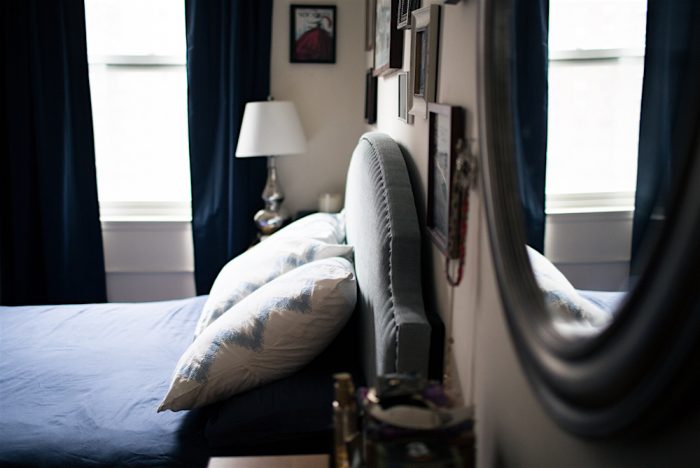The Internet of Things is changing our homes, but Alfred is finding consumers still prefer a human touch
From the time when laundry and dish washing machines were first introduced to modern do-it-all smart speakers like Google Home and Amazon Echo, there’s no shortage of technologies that make home living more comfortable and convenient. But Alfred, a home planning and management service, has been growing rapidly at a time when most other companies are approaching home help from a technological perspective. Frequently described as a sort of modern-day butler service, that doesn’t quite encapsulate everything Alfred does.
“We don’t use that word [butler]. I hate that word,” says Marcela Sapone, Alfred co-founder and CEO. “It’s not a very accurate description. Because of the Alfred name, it was a quick way [for the media] to summarize what we do. They’re actually called Alfred Home Managers.”
Home Managers, who visit your home weekly or more, depending on how often you schedule them, do indeed perform tasks that are often associated with the traditional butler—they tidy up your home, put away your laundry, do your grocery shopping—but the secret to Alfred is that it’s more than any single task.
“Alfred is a system. We plug in other service providers, and we find the best vendors. We have Alfred-approved handymen, Alfred-approved carpenters, Alfred-approved personal chefs, even Alfred-approved dog walkers,” says Sapone.
“The menu of services that we do is actually much more expansive than what we market. It’s not like a handy home cleaning service. It’s really adding hospitality to your life,” she continues.
When Alfred first launched in 2014, Sapone and Alfred co-founder Jessica Beck were looking for a way to bring hotel-style living home, focusing on the mundane weekly chores that most people find burdensome.
“When [Jessica] and I started the business, we were really thinking about balancing a demanding career and also having a family and a personal life.”
Culling inspiration from her Scandinavian upbringing, as well as trips to Japan, Sapone was drawn to the concept of omotenashi, a Japanese principle of service and the nobility of being a host. Alfred Home Managers thus go through rigorous vetting (one would hope—they have a key to your home after all). The company claims that less than 10 percent of those who apply make it through to the end.
Using data collected from customers, Alfred is then able to anticipate what products and services you will want. If you tried dog walking, for instance, Alfred uses that information to suggest similar or complimentary services, like pet grooming. Going on a trip? Alfred can make sure when you come back, your fridge is fully stocked, and while you’re away, it might suggest finally scheduling that work you wanted done in your bathroom.
“That’s a lot of things to have to ask for, but in our world, we know your life and what you need to get done, and are able to make these decisions on your behalf. That moves us away from the smart home concept—which is really focused on sensors—to an intelligent home, or a home that’s anticipating you.”
Sapone argues that virtual assistants like Amazon’s Alexa—while fun for playing music or looking up sports scores—aren’t yet suited to fundamentally changing the course of everyday life in the home.
“When you think about the nascent Internet of Things, it’s just a lot of small things that don’t work together in a system in a meaningful way. They’re like tricks. ‘Here’s a cool trick. You can ask what the weather is!’”
As we surround ourselves with tech in our homes—tech that increasing knows us and our desires—Alfred makes a case for a more human touch, and it’s proven successful thus far. According to the company, Alfred customers not only spend more money on products purchased through Alfred than they do from Amazon, they feel better doing so.
This mix of tech-like insight and human warmth has won Alfred loyal customers in the three cities it currently services. Starting in Boston, Alfred now operates in Manhattan, Brooklyn and San Francisco, and recently announced it would be expanding into Long Island. Alfred’s methodical approach to expansion means that the company carefully measures demand in an area before deciding to launch there.

The company utilizes local vendors in each neighborhood where it operates, supporting businesses in the area and providing a unique experience to each customer depending on their location. This is an important takeaway for brands in an age when the consumer wants more personalization than ever before.
For Sapone, she sees the Alfred-enabled home as a space that anticipates the needs of those who live there and performs actions to satisfy those needs—a key differentiator from devices who aren’t quite yet the home hubs we need them to be.
“Yes, it’s the lights dimming when it’s late at night, or having those groceries in the fridge waiting for you—or a bottle of wine because you have date night. You maybe forgot to even ask that, but we know that. But more fundamentally, it’s about anticipating you. It’s about actions happening in your home. We’re the only company in the world right now that can make actions happen inside your home.”